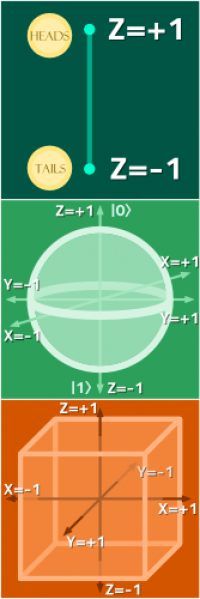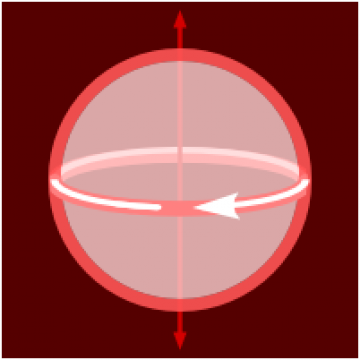Foundations Of Quantum Theory
Foundations Of Quantum Theory

Quantum theory underlies the majority of modern physics research. It has faithfully allowed us to make extremely accurate predictions since the days of Einstein, Planck and Bohr. What, however, if quantum theory did not always hold? There could be another broader theory, of which quantum theory is a subset, or an unencountered physical regime governed by a different theory altogether. Thus, we step into the realm of post-quantum theories: where we abstract and isolate properties of quantum theory and generalise them into a broader framework.
Post‐quantum theories have recently received a great deal of attention. Broadly, this is because of three reasons. The first reason is to see which aspects of the current quantum technologies (such as cryptography) will survive in the possible next physical theory. The second lies in the fact that in order to unify quantum physics and gravity we need to look beyond the Hilbert Space formulation of quantum physics. Finally, in order to comprehend quantum physics itself, it is essential to stretch its boundaries and push it beyond its current constraints, and thereby elucidate its logical structure.
Fermionic correlation
We are investigating the structure of Fermionic states from a Quantum Information theoretical point of view by exploring concepts such as orbital entanglement. This is useful because it may lead to a new numerical methodologies for studying quantum chemistry, with potential applications to biochemistry and pharmaceutics.
Non-locality
One of the most exotic features of quantum theory is known as non-locality, a kind of correlation between spatially separated systems that is stronger than allowed by pre-quantum physics. This type of non-locality is both conceptually and technologically interesting, e.g. forming the basis of a key approach to quantum cryptography. But could there be more non-locality than quantum theory allows? Similar questions are: could there be theories with stronger computational power than quantum theory? Could there be particle types beyond fermions, bosons and anyons? Asking these sort of questions helps to build a deeper understanding of quantum theory and may point the way to new physics. To tackle such questions we consider probabilistic theories in a wider framework, known as the convex framework for probabilistic theories, wherein quantum theory is a special case.
Phase in post-quantum theories

New Journal of Physics 15, 093044 (2013)
Phase is an important concept in quantum theory, as it is the concept that makes a quantum superposition more than just a classical mixture. In the famous Schrödinger's cat experiment, it is why the cat can be both alive and dead at the same time. Our recent research has been to extend the concept of quantum phase into a more general setting, in order to identify which quantum effects arise purely from quantum theory; and which effects are properties of a broader class of theory. To extend this concept beyond quantum theory, we consider what changes could be made to a system, and group these changes in sets that preserve some specific property of the system.
Click to view a more technical poster on this topic.
Latest paper: The uncertainty principle enables non-classical dynamics in an interferometer.

Nature Communications 5, 4592 (2014)


